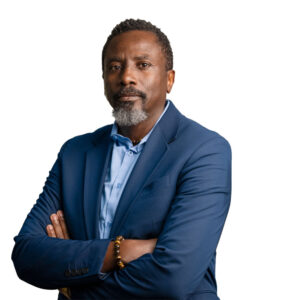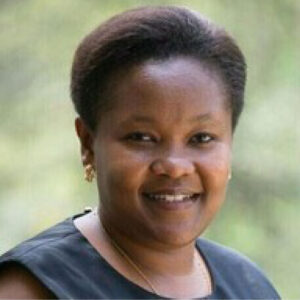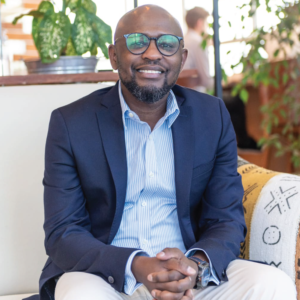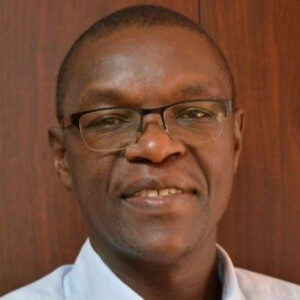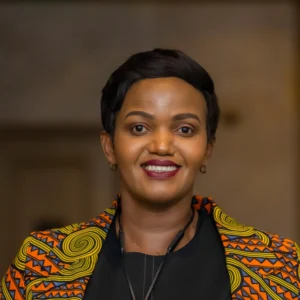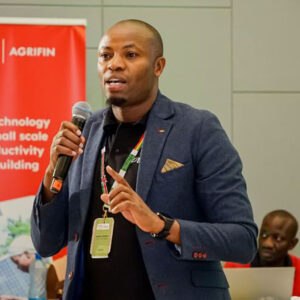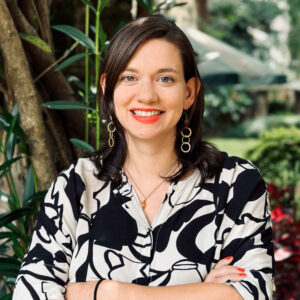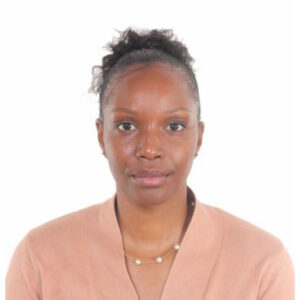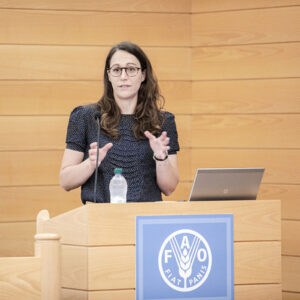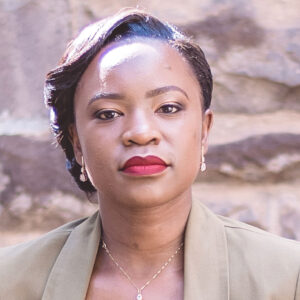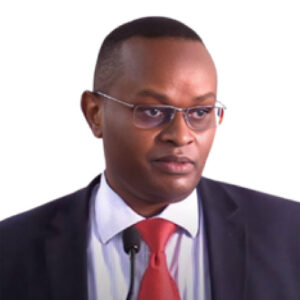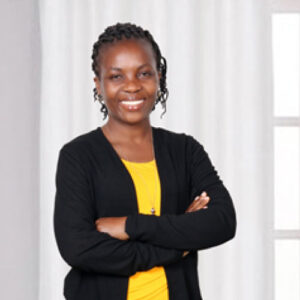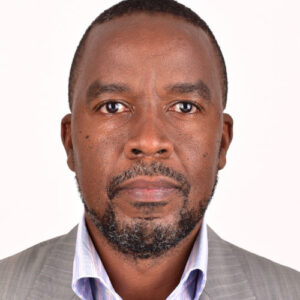9th AgriFin Learning Event
Theme: Data-Driven Innovations and Investments: Harnessing intelligence to build sustainable, investable Agri-Food Systems.
9th Annual Learning Event
Session Details
Opening Remarks
Sieka Gatabaki
Program Director
Mercy Corps AgriFin
Keynote Speeches
Presentation on the Global State of Digital Agriculture Report
Session 1: Bridging the Investment Gap
Unlocking Capital and Innovation for Agri-SMEs and Enhancing access to finance and technology to boost SME growth and impact
Across Africa and beyond, agri-SMEs face a persistent mismatch between investor expectations, their own realities, and smallholder farmer needs. While investors push for scalable tech solutions, adoption remains costly and inconsistent, and farmer-friendly innovations often struggle with low ability to pay. African agri-SMEs carry an even heavier burden building ecosystems and innovations simultaneously in informal markets—yet global funding frameworks apply a one-size-fits-all approach. This calls for catalytic funding, patient capital, and blended finance models that are tailored to Africa’s unique context.
At the same time, the intersection of climate change, innovation, and agri-SME investment remains underdeveloped. Unclear resilience metrics, limited data sharing, and shifting donor priorities—driven by geopolitical changes—are reducing concessional funding and widening gaps. To unlock growth, we must rethink financing strategies, embed climate-smart and gender-sensitive models, and map regional funding gaps to design solutions that balance profitability with sustainability.
Session Objectives
- Bridge the gap between investors, agri-SMEs, and smallholder farmers.
- Unlock financial models that balance innovation, ecosystem development, and profitability.
- Drive climate-smart, gender-sensitive solutions in agri-SME innovation and funding.
- Map regional funding gaps—technical, social, and financial—across Sub-Saharan Africa, North America, Asia, the Middle East, and Latin America.
Grace Njoroge
Technical Director-Programs
Mercy Corps AgriFin
Betty Muriithi
Senior Regional Digital Financial Services Manager
Mercy Corps AgriFin
Munyi Nthigah
Co-Founder & CGO
Ketha Technology Limited
Millycent Aoko
CFA
Investment Manager,
Acumen
Jared Osoro
Member of The Monetary Policy Committee,
Central Bank of Kenya
Mike Mccaffrey
Regional Digital Manager for the United Nations Capital Development Fund (UNCDF) and manages the FinWise Programme
Session 2: Harnessing Emerging Technologies to unlock Investments for Agri-SMES: Cross sectional convergence of AgriTech Fintech and AI
Theme: Strategies and Pathways to Scaling Gender-Inclusive Digital Agricultural Finance
Artificial Intelligence (AI) is set to play a transformative role in agriculture across sub-Saharan Africa, offering solutions to persistent challenges such as inadequate extension services, weak supply chains, poor access to credit, limited insurance, and underdeveloped markets. Yet, despite its potential, adoption has been slow due to weak digital public infrastructure (DPI), uneven investment across regions, and limited capacity to develop sustainable funding models. Current gaps in safeguards, regulatory frameworks, and multi-stakeholder coordination continue to hinder progress, leaving much of AI’s potential for agri-SMEs untapped. Unlocking these opportunities requires deliberate investment in infrastructure, inclusive policies, and strategies that also build the skills of youth and women, who remain underrepresented despite their central role in agriculture.
Alongside AI, geospatial technologies present significant opportunities for agri-SMEs by enabling smarter data use in finance, insurance, climate-informed extension services, and evidence-based decision-making. While other sectors such as security and transport already leverage geospatial data, agriculture has yet to maximize its benefits. When combined with AI, these innovations can derisk agri-SME investments, boost investor confidence, and unlock new pathways for sustainable growth. However, the gap remains at the intersection of scaling AI and geospatial solutions with the right investments, frameworks, and collaborations that allow agri-SMEs to thrive.
At ALE 2025, this session will be aimed at:
- Exploring strategies to bridge infrastructural gaps that limit AI innovation for agri-SMEs in Africa.
- Identifying investments to scale African AI for agriculture through talent, infrastructure, and innovation.
- Unlocking the potential and investment options for geospatial and AI innovations in agri-SMEs.
- Showcasing possible use cases for advisory and investment opportunities focused on AI and geospatial solutions at the agri-SME level.
Emmanuel Makau
Senior Regional Technology & Data Manager
Nathanial Peterson
Senior Scientist Climate Action lever
The Alliance of Bioversity International & CIAT
Dr. Denis Fidalis Mujibi, (PhD)
Associate Director in charge of Data Insights and Market Intelligence at the Strathmore Agri-Food Innovation Center (SAFIC)
Alfred Ongere
Founder and CEO, AI Kenya
Charlene Migwe
Program Director
Caribou
Jessica Colaco
General Manager of Lintons Academy & Foundation
TED fellow
Hafsah Jumare
Founder and CEO,
Coamana
Dr. Shikoh Gitau
Founder and Chief Executive Officer,
Qhala
Stewart Collis
Senior Program Officer, Digital Solutions, Agricultural Development
Bill & Melinda Gates Foundation
Session 3: Strengthening Ecosystems and Partnerships for Resilient Agri-SMEs: Building collaborative linkages to enhance market access, finance, and scalability through DPI, Data sharing
The success of agri-SMEs and digital innovations is deeply tied to the strength of their surrounding ecosystems. In sub-Saharan Africa, ecosystem conditions are often fragmented, making it difficult for agri-SMEs to thrive. Building favorable environments requires deliberate collaboration—within countries and across the continent. This means creating honest dialogue, sharing data, aligning regulations, and equipping citizens with new skills, such as in the use of AI. By reducing silos and encouraging partnerships, stakeholders can unlock collective growth and foster ecosystems that support both innovation and sustainability.
At the same time, collaboration gaps remain at multiple levels—among investors, donors, and innovators. Investors often duplicate efforts, channeling funds into similar ventures without achieving strong milestones, while donors overlap in priorities and geographies, reducing efficiency. Meanwhile, innovators frequently produce overlapping solutions that compete for limited funding rather than complementing each other. Greater transparency, coordination, and regulatory guidance are needed to align efforts, minimize duplication, and encourage partnerships. By fostering ecosystems that enable plug-and-play solutions and shared accountability, the agri-SME sector can attract smarter investments, scale innovation, and deliver stronger impact.
At ALE 2025, this session will be aimed at:
i. Exploring ecosystem solutions that facilitate collaboration and coordination for collective investment and growth of agri-SME ecosystems.
ii. Identifying strategies to reduce inefficiencies, overlaps, and duplication of investments at the implementation level.
iii. Examining modalities for collaboration, partnership, and coordination of ecosystem investments at the investor level, particularly in light of shifting donor funding flows.
Samuel Karanja
Senior Regional Agriculture Manager
Mercy Corps AgriFin
Elena Laichena
Managing Director
Kenya at Delta40
Salome W. Kimani
Financial Inclusion and International Development Specialist
Marie-Agnès Jouanjean
Senior Agricultural Economist
Agriculture and Food Global Practice
World Bank
Lavender Akinyi Apollo
Data and Digital Agriculture Consultant
World Bank.
Dario Giuliani
Founder
Briter Bridges
Michael Kigathi
Digital Agriculture Specialist
FAO Kenya
Masterclass 1: De-risking last mile distribution and climate investment through agent network optimization
The session will include a presentation from Enabling Market Intelligence and Building Engagement (EMBE) project. The project implemented by Alliance of Bioversity International and CIAT, which is part of CGIAR, works to provide data, analysis, and insights into agricultural markets and systems. It will involve and an audience engagement/interactive segment.
Nathanial Peterson
Senior Scientist Climate Action lever
The Alliance of Bioversity International & CIAT
Rahab Kariuki
Engagement Director
Masterclass Title: Systems Leadership as a Lever for Transformation in a Digital Agriculture Era
This interactive masterclass will empower participants to understand and apply Systemcraft — a practical leadership framework (designed by Wasafiri) to use across diverse contexts to navigate complexity and drive meaningful change in the digital agriculture space. Key Design Focus:
Balancing Evidence and Emotion Participants will explore how to blend data-driven insights with human-centered storytelling to create lasting impact. Using the PPII framework (Policies, Power dynamics, Investments, and Incentives), facilitators will connect analytical perspectives with real-life examples from AFF Fellows, building both credibility and emotional resonance.
Masterclass Title: Strengthening Impact Measurement for Agtechs
In today’s development and investment landscape, demonstrating tangible, data-driven impact is no longer optional—it’s essential. Yet, many organizations struggle with fragmented metrics, inconsistent frameworks, and limited capacity to measure and communicate real outcomes.
This masterclass will equip participants with practical tools and strategies to design effective impact measurement systems that go beyond compliance. Drawing on AgBase’s experience in Impact Measurement and Management (IMM), the session bridges theory and practice—helping organizations align their mission with measurable outcomes, enhance decision-making, and build credibility with funders and partners.
Participants will learn how to move from narrative-driven decisions to evidence-based insights, adopt standardized frameworks, and strengthen accountability—ultimately enabling more effective, transparent, and scalable impact.
Ritah Setey
MERAL Officer, MCA
Lydia Wafula
MERAL Manager, MCA
Audrey Chebet
Senior Research Associate, Briter
Reverse pitching session- What We Wish You Knew: Insights from the Other Side
The Reverse Pitching Session will aim at redefining the traditional investment pitch format. Rather than startups pitching their ideas to investors, investors, funds, and support organizations present themselves to startups. They will share their funding priorities, investment criteria, portfolio highlights, and the unique non-financial value they bring, such as mentorship, networks, and technical assistance.
The session’s purpose is to create a transparent, engaging, and collaborative environment where founders can identify the right investor fit early and foster stronger, more strategic partnerships.
Given the evolving funding landscape, with donor priorities often overlapping and overall investment levels impacted by shifts in donor-country policies, efficiency in investment allocation is more critical than ever. This format encourages clarity, alignment, and trust-building from the outset.
Elias Nure
Digital Climate-Smart Agriculture and Sprout Platform Lead,
Mercy Corps AgriFin
Larissa Shraydner
Innovation Manager at IDH
Philip Muturi
Head of Ecosystem Business
NCBA group
Eugene Gikonyo
Investment Principal
Mercy Corps Ventures
Fred Kiio
Associate Director
Agri Business at the AECF ( Africa Enterprise Challenge Fund)
John Kavilu
Senior Manager
Impact Finance Lead
Mwombeki Baregu
Investment Officer
International Finance Corporation
The AgriFin Learning Event (ALE) brings together innovators, farmers, financial service providers, agribusinesses, and policymakers to share insights, foster partnerships, and scale digital solutions for smallholder farmers across Africa.
Pages
- Home
- About ALE
- Annual Events
- Resources
- Marketplace
- Contact Us

